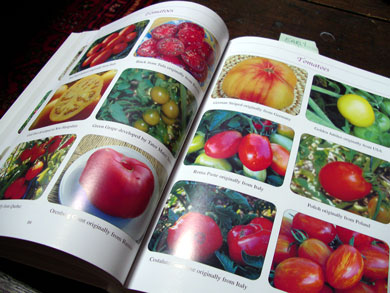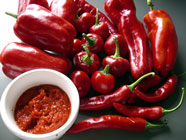Seed Saving Networks are increasingly important as a way to preserve genetic diversity locally and globally. They provide a nucleus so that we can all participate in conserving edible and local plants and share them around the world.
Through seed saving networks gardeners can access and share a much wider range of edibles than are commonly available commercially. There are seed saving networks around the world, here I have listed the ones I know of in the English language. These networks are a great source of seed saving and variety knowledge, useful for anyone interested in growing their own food, why not join one, and if you know of any others do let me know.
Europe
Heritage Seed Library, England
The Heritage Seed Library maintains a collection of about 800 heritage European varieties, those that have been dropped from catalogues or family heirloom varieties that have never been in a catalogue. The HSL aims to conserve and make available vegetable varieties through its members. There is also the opportunity to swap seeds with other members and to volunteer as a seed guardian. See my post on Joining the Heritage Seed Library
Irish Seed Savers Association
The ISSA is a voluntary organisation dedicated to the location and preservation of traditional varieties of fruit and vegetables. The Association maintains a seed bank which distributes seed of these non-commercial available vegetables, as well as a network of heritage potatoes. We pass them on to members so that they can learn to save them and in this way ensure a living agricultural legacy.
Association Kokopelli, France
French organisation, Association Kokopelli involved in the protection of biodiversity and in the production and distribution of biodynamic seeds. The association manages a seed guardianship scheme to produce open-pollinated seeds for free distribution to third world countries. French organisation with a UK subsidiary. Association Kokopelli offers a collection of heirloom varieties of vegetables, grains and flowers all of them open-pollinated.There are two collections of seeds available. The Kokopelli Boutique Collection lists over 1000 varieties available on a commercial basis including 200 varieties of Tomatoes, 80 varieties of Squashes and 100 varieties of Peppers. The seeds within this range are all produced by professional growers in organic agriculture, all certified by one of the recognised certifying bodies. Then approximately another 1500 varieties are available to active members of the Association offering varieties that are little grown, little known and in many cases on the brink of extinction. These seeds are produced by members and professional growers organically and are available in free exchange to members.
List/catalogue:On-line listing and ordering. Printed paper list and off-line ordering. Kokopelli produces a superb 440 page hardback book in French and English The Seeds of Kokopelli; A Manual for the Production of Seeds in the family garden, which includes its directory of Heritage Seeds listing over 2,500 varieties available.. Kokopelli has an Adopt a Seed programme read more Kokopelli Seed Guardianship
Canada & USA
Seeds of Diversity, Canada Canada’s Heritage Seed Program for gardeners. A source for information about heritage seeds, seed saving, plant diversity, garden history and Canada’s own garden heritage. “Together we grow, propagate and distribute over 1900 varieties of vegetables, fruit, grains, flowers and herbs. We are a living gene bank.”
Seed Savers Exchange, USA
‘Since 1975, Seed Savers Exchange members have passed on approximately one million samples of rare garden seeds to other gardeners. We are a non-profit organization of gardeners dedicated to saving and sharing heirloom seeds.’
Native Seeds/SEARCH, USA
Native Seeds/SEARCH is is based in Tucson, Arizona with the aim to conserve, distribute, and document the adapted and diverse varieties of agricultural seeds, their wild relatives and the role these seeds play in cultures of the American Southwest and Northwest Mexico. The NS/S Seedbank houses, for future generations, the seeds of crops and wild plants traditionally used as food, fiber and dyes by prehistoric and more recent cultures inhabiting the arid southwestern U.S. and northwestern Mexico.They also have an adopt a crop programme.
Antipodes
Seed Savers Network, Australia
Preserving the genetic basics of tommorrow’s food. A non-profit organisation promoting and organising the preservation, free distribution and exchange of open-pollinated seeds. Provides training for gardeners and farmers in Australia and the Third World on these matters.
Seed Savers Aotearoa New Zealand
Seed Savers Aotearoa New Zealand facilitates the sharing of information and resources between regional seed saving groups. A bit of joined up thinking here they plan to host a Seed Register that can be used by Seed Saving Groups to record the details of their seeds.
Koanga Institute, New Zealand
The Koanga Institute exists to preserve, conserve and develop NZ’s heritage plants and animals. We hold a nationally important collection of heritage fruit trees, vegetables and flowers.. There is a seed multiplier programme for volunteers to help support the work of the Koanga Institute
India
Annadana
Annadana Genetic Resource Center and Soil and Seed Savers Net workwas created in 1999 in Auroville,Tamil Nadu, India, by the International Seed Savers Foundation: Association Kokopelli, in partnership with the Auroville Botanical Garden. Annadana is a network promoting the conservation, production, multiplication and exchange of seeds of traditional varieties of vegetables, pulses, minor cereals and all the plants favoring the development of sustainable agriculture.
The Blogger Seed Saving Network
For a more informal network check out The Blogger Seed Saving Network started by Patrick at Bifurcated Carrots in 2008 where garden bloggers list, swap and share the varieties they have grown and saved seeds for. Some have just one or two varieties while others have thousands it is a great way to find new varieties and learn from each other.
To read more about why it is important to protect biodiversity, save and share seeds see a previous post Seed Poverty


